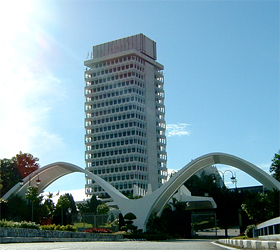
ONE thing is obvious from the answers of the Members of Parliament (MPs) who responded to The Nut Graph‘s MP Watch: Eye on Parliament project: more focus is given to their roles as constituency caretakers than as lawmakers.
Not that it’s entirely the MPs’ fault. Part of the reason for this is the way the Malaysian Parliament is set up. Our Parliament doesn’t consistently practise the select committee system to deliberate bills. Several MPs have noted that the absence of a committee system has rendered Parliament a “rubber stamp” for bills drawn up by the executive. Also, much time is wasted during the debates when MPs come unprepared.
I propose six measures that Parliament could immediately undertake to reform itself. These are not macro-level reforms but micro-level steps involving procedures which could, to some extent, restore Parliament to its law-making function. Or, at the very least, reduce the time wasted on unproductive debates during sittings.
These proposals are drawn from reports by a 2007 working group on European Parliament reform, the Canadian Parliament research branch’s 2002 paper on House of Commons procedure reforms, and other sources.
![]() Agenda-setting
Agenda-setting
Party whips should meet up weekly to determine the agenda of the following week’s sitting. Time blocks should be allocated and debates should be timed to ensure only quality arguments are presented.

This is not a new suggestion. Minister in the Prime Minister’s Department Datuk Seri Nazri Aziz, who oversees parliamentary affairs, has suggested weekly meetings between party whips to determine the following week’s agenda.
![]() Written answers given before sitting
Written answers given before sitting
All written answers to written questions should be published on the Parliament website before the session, leaving time for follow-up questions and impromptu discussions during the sitting.
This move would help reduce the low attendance rate in Parliament sessions, as a typical session is merely a ritual ceremony. With lively debate on follow-up questions, MPs would need to be physically present to give input on unscripted discussions.
This micro-level reform should also apply to proposed bills and/or amendment to bills, whereby the bills are sent before the start of parliamentary sessions to all MPs. This would negate the need for bills to be fully read out during sessions, allowing more time for discussions.
![]() Inter-institutional online database
Inter-institutional online database
Parliament can set up an online database of articles by the government, various non-governmental organisations (NGOs), policy think tanks, as well as articles by the private sector. This could easily be done by creating a division in MyEG.
Such a database would reduce the need to request for statistics from ministers through parliamentary questions. In addition, it would work to educate proactive Malaysians who seek to learn more about the government. With a centralised database, the government could turn to independent researchers, such as NGOs and think tanks, for answers to tough questions on policy making. This would also remove duplication of research efforts.
![]() Designate a deputy speaker from the opposition
Designate a deputy speaker from the opposition

Our current system has one speaker of the House, the Yang di-Pertua, and two elected deputy speakers. However, seeing that our Parliament is usually dominated by one party, it would be wise to allocate a seat for one deputy speaker from the opposition. This would empower the opposition to have a legitimate say in policies, as the speakers would work to ensure all sides get a say in Parliament.
![]() Annual public consultation
Annual public consultation
In 1995, Canada’s parliament mandated their Standing Committee on Finance to conduct annual public consultations. Our Public Accounts Committee could do the same.
![]() Comprehensive committee system
Comprehensive committee system
While other parliaments are deliberating improvements for their committee systems, the Malaysian Parliament has yet to establish a proper committee system.
The committee system in our Parliament largely comprises temporary committees. There are only five sessional select committees. They are the Selection Committee, the Standing Orders Committee, the House Committee, the Privileges Committee, and the Public Accounts Committee.
The absence of a proper committee system, where MPs can specialise in a certain area, is one cause for the lack of specialisation among our leaders. It should therefore not come as a surprise that our policies lack in-depth analysis.
A reform of the committee system is needed to enable policy specialisation for our parliamentarians. For example, UK’s Parliament has numerous select committees on various national concerns such as home affairs, foreign affairs, and science and technology.
At the end of the day, perhaps the best way to display the lack of development in our Parliament is to compare the Malaysian Parliament website with that of the UK Parliament. It will be apparent that the only electronically accessible resource our Parliament website has is a database of previous order papers as well as bills. This is in stark contrast to the UK website, which is loaded with research documents on public policies, video streaming links, and information that includes the cost of office supplies for MPs.
A much-needed reform of our Parliament is required before Malaysians can rely on it to make sound laws. ![]()
Jamie Khoo is a research associate with non-profit think tank Research for Social Advancement (Refsa). The article represents the author’s personal views on the issue.
The Nut Graph needs your support


Ruzaini says
Well written opinion. It gives a comprehensive understanding of the weakness of Malaysian parliament. Hopefully there are lawmakers who can take note of these suggestions of reform.
Jamie says
Thanks, Ruzaini.
To be honest, most (opposition) MPs already know the weaknesses. It is quite plain to see. I mean, it can’t be too hard especially if you are part of the Inter-parliamentary Union.
In most cases, it boils down to the point of political will. In this case, will our leaders agree to restructure the parliament in such a way that gives them more work to do?
—————————————-
But beyond that- are Malaysians ready for MPs to do their REAL job, which is to make policies?
Having spent a few months in a MP’s service center, I have seen citizens coming in to complain about the drainage system (which is the job of the local council) or security (job of police force)…
You hardly hear complains about specific laws/policies, which is in actuality the MP’s REAL job.
Ruzaini says
I could not agree less with you. I think a structural reform in the perception of the real purpose of parliament has to be undertaken, so that the public in general will know what are the real functions of a parliamentarian.
For that matter, I readily suggest that the the pupil in secondary school should be exposed to the functions and purpose of a parliament. I know that they are being taught about the Malaysian governmental system. However, they merely learn about the procedure of law-making in the House; they nevertheless do not understand the bigger picture, i.e. the reason those procedures are put in place.
Furthermore, I think the public need, from time to time, be educated about the functions of each governmental bodies or agencies. And if we really want to accomplish this mission, then certain quarters of the society, i.e. the academics, the political parties and the NGOs would have to take the pain and conduct the campaign.
With all those suggestions, I hope the public would be able to really appreciate the existence of a purposeful Parliament or State Assembly.
Ruzaini says
In most cases, it boils down to the point of political will. In this case, will our leaders agree to restructure Parliament in such a way that gives them more work to do?-
Not only that the parliamentarians need to have the political will to restructure Parliament so that they will have “more” work to do, but they also need to make sure that they are doing real work that benefit both the citizens and the country. There is no point of restructuring Parliament to the tune of giving the MPs more work when the “more work” that they need to do amounts to nothing less than wasting the taxpayers’ money on unnecessary things.
Moreover, Parliament has to be strict towards the members who form the executive branch. These ministers should not be allowed to dry the country’s coffers on unnecessary expenditures without being subjected to meticulous scrutiny from Parliament. It should be the members of the Parliament as a whole that determine how the money should be spent, not a select few of executive members who are MPs.